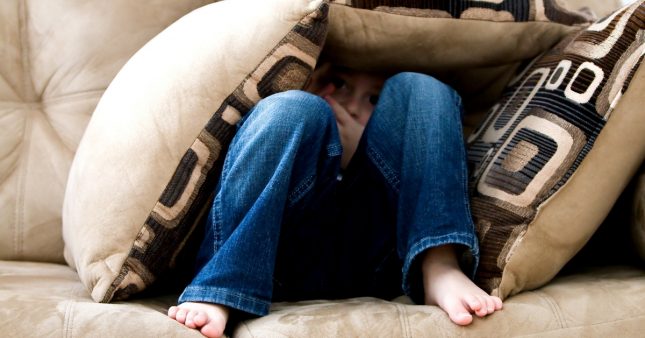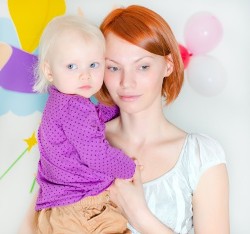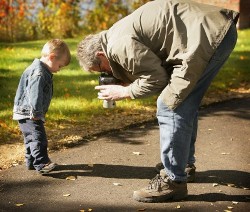This article looks at how to support your child when they have witnessed or been caught up in distressing situations, like an accident, a death, violence, bullying, a disaster or a crime.
After a traumatic event, your child/teen is likely to be experiencing a range of reactions.
These are normal, and will reflect their age and stage, personality and the specific circumstances of what’s happened. They will begin to gradually feel better as time passes and things settle down more, but they distressing events can have a big impact – more than most adults realise.
Reactions may happen in first days, weeks and months – or even quite a long time after the event. Reactions can begin at any time, which can often be a surprise for parents and carers. Infants, toddlers, pre-schoolers, primary and secondary age children and teens can all be affected by an event of high stress or trauma – just life adults can.
- numbness and shock
- acting as if it hasn’t happened
- tearful or unable to cry
- more anxious or clingy
- jumpy – easily startled
- confused and distracted
- wanting to talk or clamming up
- finding it hard to concentrate or focus on things
- wanting to be with others more or withdrawing more
- increased irritability, angry meltdowns or aggression
- physical responses – aches, pains, feeling sick, shaking, hot and cold
- sleeping more or less
- eating more or less
- nightmares or flashbacks, reliving what happened, or what they think happened
- wanting to avoid school and other events for a while
- loss of trust in people or things
- a temporary regression in toileting or behaviour – such as losing confidence, becoming more clingy, or bedwetting, or a downturn in school or sport results
- up and down emotions, or moments of particularly intense emotion
- some risk taking behaviours to escape the grief and pain – esp. teens.
Tips for Supporting Your Child after a Traumatic Event
Keep calm and reassuring, encouraging, affectionate and loving – as best you can. Look directly at your child as you speak to them.
Let them know what’s happened was NOT their fault. Many children and even teens wonder if something they did or didn’t do, or thought, played a part in causing this awful thing to happen.
Let them know that they are safe and remind them of this. For older children, keep contact phone numbers handy for them.
Provide a strong physical presence. Spend time with them and keep more close to them until they recover more after the event. Physical closeness and holding brings children and teens a sense of both comfort and security. They might appreciate extra hugs, smiles, a hand held or a back rub – whatever suits each particular young person. Have regular eye contact so they know you know they’re there.
Be aware of any media about the event. News coverage and images may upset them. Talk with them honestly if they see images or hear news.
Be honest. Give them straight and simple explanations and answers. If you don’t know an answer to their questions, find out for them, if possible.
Keep them informed of things they do need to know about. Don’t let them hear things from others before you, if possible. Keep them in the loop.
Give them opportunities to talk about what’s happened, if they want to. Respect the fact that some won’t want to talk at all. They might tell their story in their play, pictures, music or things they write. It can take time. Don’t ouch them.
Help them to learn and use healthy coping strategies such as: getting enough sleep, eating well, drinking enough water, doing physical exercise, talking out things with someone they trust, being allowed to ask questions, having times to play, relax and get their mind off things, spending time with friends, using the help and guidance of others, or being allowed to make, or help make, both big and small decisions. Role model some of these things yourself.
Questions, memories and stories about what’s happened may get repeated as they work through the event and make sense of it – and its consequences. Be patient with this process.
Keep up your everyday routines as much as possible. Keep up sensible behaviour boundaries, but allow some flexibility when needed. These ‘normal’ family ways of doing things can bring a much needed sense of normality and safety. Behaviour may change at a stressful time. Encourage your child/teen to gradually return to more appropriate and positive behaviours as things settle down again.
Sometimes a child or teen’s development may regress for a while, such as returning to bed wetting, soiling, a loss of confidence or clinginess. Reassure them things will come right again for them, bit by bit. Trauma can have a big impact for a while.
Increase their time with their friends, family and other support circle people, such as a sports team or club. Great support can come from others outside family too.
Read to them about other children who have faced difficult times. Contact your local library or see www.skylight.org.nz or phone Skylight on +64 4 939 6767.
Keep in mind that people in the same family can all react differently. Give each person the time and space they need to process their grief in their own ways.
Watch for any risk taking behaviours in older children or teens that may happen as a way of escaping or dulling the pain, grief or memories. For example, drinking, drug taking, sexual relationships, driving fast or stupid, thoughtless behaviour, or gambling. Intervene to make sure the young person recognises the risk and get support to help manage their behaviour if you need to – such as from your doctor, family support worker, school or guidance counsellor.
Sometimes opportunities to help others can help them. It can give young people a chance to do something positive in the face of what’s happened. It can relieve tension and bring hope.
Find ways to remember with them how good life can still be – sharing hope for a positive future by finding things to enjoy and things to look forward to. Let your young person know it’s still okay to laugh and have good times. Life is a mix of all sorts and it helps them to know that.
When and how should I get help for my child?
Look again at the list of common responses after trauma, these are not uncommon in the first days and weeks after a trauma.
However, if they continue for months, if you’re ever concerned that these changes seem to be getting extreme or worse, if other things are concerning you about your child/teen, or if you think your child is at risk of harm, don’t hesitate to talk to your child’s doctor, a mental health team, a trained counsellor or a support worker from a local family support agency. Get help and support as soon as you can. Your local citizens advice office or medical centre can advice you of local support options, or check your local community phone directory or see www.familyservices.govt.nz, which is excellent.
Dark, negative thoughts are possible for some vulnerable children/teens as they wrestle with what’s happened. ALWAYS seek professional help immediately if you can see their mood or preoccupations are especially negative. If you ever think they are in danger of harming themselves, or others, stay with them and get to a doctor, medical centre, or in an emergency always dial 111. Don’t hesitate to do this. They need extra support.
Additional help
Skylight offers free, personalised, tailormade support packs for families in tough times – just ask contact Skylight to request one (a donation is invited to help cover costs). You can call them on: 0800 299 100






